Jan Ullrich hat wieder Lust am Radfahren – bei Marathonveranstaltungen und Radsport-Events, mit großer Offenheit und viel Freude am Radfahren. Wir trafen den deutschen Toursieger am Rande eines Prostyle-Radsportwochenendes im niederländischen Vaals.
Der Oberkörper ist massiger geworden, die Beine sind nicht mehr ganz so definiert – aber er ist es, ganz unverkennbar: Jan Ullrich. Der Mann, der in jungen Jahren mit seinem Sieg bei der Tour de France 1997 Sportgeschichte schrieb, der bis heute in einem Atemzug mit Boris Becker, Michael Schumacher oder Steffi Graf zu nennen ist. Gewinner der Tour, der Vuelta und der Tour de Suisse, Weltmeister und Olympiasieger, der Mann, der in Deutschland einen nie dagewesenen Radsportboom entfachte.
So ruhmvoll sie mit dem Gewinn des Amateur-WM-Titels in Oslo und dem Tour-Sieg begann, so ruhmlos endete Ullrichs Karriere. Doch das und die Häme, die der einstige Vorzeigesportler über Jahre hinweg einstecken musste, sind in Momenten wie diesen vergessen. Gerade ist die Prostyle-Radgruppe um Jan Ullrich und seinen Weggefährten Olaf Ludwig von einer 130-Kilometer-Runde auf den Spuren des Amstel Gold Race zurückgekehrt; frisch geduscht sitzt man im Innenhof des historischen Schlosses Vaalsbroek und amüsiert sich mit dem bizarren Spezialrad mit den zwei Rahmengelenken, das Ludwig mitgebracht hat. „Wir haben ja viel experimentiert, um die Radbeherrschung zu verbessern“, so der Amstel-Gold-Sieger von 1992. Die meisten Gäste trauen sich, eiern unter dem Gelächter der Gruppe über den gepflasterten Hof. Und schließlich steigt auch Jan Ullrich auf, schlägt sich besser als die meisten, stimmt in das Lachen ein wie alle anderen. Ein Radsportler unter vielen, auf Augenhöhe mit Männern und Frauen, die aber auch seine Fans sind. Der Mann, der viele hier erst zum Radsport gebracht hat, ist in der Mitte der von ihm angestoßenen Sportbewegung angekommen – und er genießt es. Und Zeit für ein Interview hat er natürlich auch…
Kann man von Jan Ullrichs neuer Lust am Radfahren sprechen?
Das geht ja schon eine Weile, seit über zwei Jahren, dass ich nach meiner Pause, in der ich so gut wie gar nicht gefahren bin, wieder auf dem Rad sitze. Und jetzt ist es wieder ein richtiges Hobby geworden – mit Herz und Leidenschaft.
Bist du noch am Profiradsport interessiert?
Ich schaue mir die Radrennen der Profis unglaublich gerne im Fernsehen an, wenn ich Zeit habe, bin sonst aber aus dem Profi-Geschäft raus – abgesehen davon, dass ich mit Klödi, Grabschi, Tony Martin und allen, die bei mir in der Gegend wohnen, noch gut befreundet bin. Ansonsten fühle ich mich unheimlich wohl im Jedermann-Bereich.
Ist der Radsport vielleicht zum ersten Mal in deinem Leben einfach nur ein Hobby?
Nein – das fing ja als Hobby an und war für mich eigentlich ein Hobby bis zu den Amateuren oder fast bis zu den Profis, weil ich mit Leichtigkeit meine Rennen gewinnen konnte und immer der Jüngste war, der alle Rekorde gebrochen hat. Das Profi-Geschäft war dann natürlich knallharte Arbeit; das war 80 Prozent Arbeit und nur noch 20 Prozent Spaß und Hobby. Das ist einfach ein Beruf, der so schwer ist und in den man so viel investieren muss – an Kraft, an Zeit, an Trainingskilometern…
Aber jetzt kann ich wieder fahren, wann ich will. Bei meinen Events spreche ich sehr gerne mit Leuten über das Thema, beantworte Fragen – ich habe ja eine 30-jährige Erfahrung in dem Sport, und es ist immer schön, wenn man das weitergeben kann.
Die Stimmung hier bei Prostyle ist einfach nur gut, und ich denke, dass eine Menge der Leute hier erst durch deine Erfolge mit dem Radfahren angefangen haben…
Das ist richtig, und das höre ich immer wieder – etwa wenn ein Tony Martin zu mir sagt, „durch dich bin ich zum Radsport gekommen“. Der Boom aus jener Zeit, der immer noch anhält, ist der Jedermann-Boom, und viele der Profis, die jetzt noch fahren, ob das Linus Gerdemann ist oder Ciolek, sind fast noch Kinder gewesen, als ich meine großen Erfolge hatte, und sind davon sicher auch ein wenig inspiriert worden.
Wie erlebst du die großen Marathons und Gran Fondos – ist so etwas für dich nicht ein Spaziergang?
Nicht wirklich – es gibt ein Rennen, vor dem ich sehr viel Respekt habe, das ist der Ötztaler. Da muss ich nur Leute betreuen, nicht auf Zeit oder um den Sieg fahren, aber ich muss trotzdem fit sein – es geht immerhin um fast 6.000 Höhenmeter und 240 Kilometer. Da betreue ich Leute, die teilweise ohne meine Tipps gar nicht durchkommen würden. Dieses Gefühl, durchzukommen, ist ja typisch für die Jedermänner – sonst könnte man ja auch eine Lizenz lösen und Radrennen fahren. Ich betreue lieber Fahrer, die unerfahren sind und einfach Lust am Radfahren haben. Und da trainiere ich auch schon ein bisschen mehr. Die Zelle erinnert sich sehr schnell an Leistung, an Kraft und an Trainingsreize, aber man muss trotzdem einiges machen, und ich habe inzwischen so viele Events, dass ich alleine damit wieder auf meine paar Tausend Kilometer komme. Und ich trainiere auch gerne nebenher, wenn das Wetter passt.
Wie erlebst du das bei den Jedermännern? Kann der Profi-Bereich vielleicht von der Begeisterung profitieren?
Ja, vielleicht – wenn man etwa sieht, dass der Radsport Tausende von Leuten interessiert und auch die Einschaltquoten zur Tour de France entsprechend hoch sind, dann kommen sicherlich Sponsoren. Aber solange das Thema Doping und die alten Kamellen immer wieder rausgezogen werden, so lange traut sich auch keiner. Das hatten wir ja im letzten Jahr mit Alpecin, die wirklich bereit waren, ein paar Millionen für ein deutsches Team hinzulegen. Ich bin der Meinung, dass es noch ein bisschen Zeit braucht. Es gehört ja auch Mut dazu, sich für den Radsport zu entscheiden. Wir hätten das Potenzial, sicherlich – es sind viele Nachwuchsfahrer da. Es fängt da unten an, dass vielleicht mal in zehn Jahren wieder ein Fahrer da ist, der solche Leistungen wie ich bringen kann.
Zieht es dich manchmal ins Profi-Business zurück?
Im Moment nicht. Ich telefoniere oft mit Jens Heppner, und der ist ja mehr unterwegs als früher. Er mag das nach wie vor, ich bin lieber bei meiner Familie. Beratend könnte ich mich irgendwo sehen – das Thema kam ja auch bei Alpecin auf.
Was müsste deiner Meinung nach passieren, damit der deutsche Radsport wieder richtig auf die Füße kommt?
Wenn du mich fragst, ist das einfach eine Zeitfrage. Das Thema muss mal aus den Medien raus, wir müssen mal eine Zeit lang keinen Skandal mehr im Radsport haben – dann kommen auch die Sponsoren wieder. Da müssen wir alle an einem Strang ziehen. Wir müssen den Fahrern wieder vertrauen; wir müssen auch unten anfangen, den Eltern für ihre Kids Sicherheit geben – und es darf die nächsten fünf bis zehn Jahre kein großer Skandal mehr im Profiradsport passieren. Und wenn ein Sponsor einsteigt, dann gibt es wieder eine Kettenreaktion, und es steigen wieder mehrere ein.
Wir haben die Talente, und es kommen nach wie vor Fahrer nach, jetzt müssen wir eben dranbleiben.
Stichwort Talente: Wann gesellt sich zu den deutschen Weltklassesprintern endlich wieder ein Rundfahrer?
Das haben sich vor 1997 schon alle gefragt – warum gewinnt kein Deutscher die Tour? Das war ein Glücksfall, wie ihn Deutschland oder Dänemark oder jetzt England nur ein Mal erlebt haben, weil wir eben nicht die typischen Radsportnationen sind. Das kann man nicht programmieren, da muss alles passen.
Ich halte ja immer noch ganz große Stücke auf Andreas Klöden – nicht nur, weil er mein Freund ist. Er ist immer noch der Joker, und ich glaube jetzt will er’s noch mal wissen. Er hat sehr große Freiheiten, weil alle um sein Können und sein Talent wissen, und diese Karte kann durchaus mal gespielt werden…
Glaubst du eigentlich, dass die Leute nachvollziehen können, wie ein Radprofi lebt?
Nee. So ein Profileben kann man sich nicht vorstellen. Ich kann es mir nach den sechs, sieben Jahren, wo ich aus dem Business raus bin, schon selbst gar nicht mehr vorstellen, wie hart das war. Du bist in diesen Kreisen drin, du fährst deine 35.000 Kilometer im Jahr, und du bist halt wirklich von morgens bis abends durchgeplant…
Rührt die Skepsis gegenüber dem Radsport vielleicht von diesem Unverständnis her?
Natürlich sind diese Leistungen fast abnormal – da fahren sie wieder im Schnee beim Giro und so weiter, das können die Leute nicht verstehen. Die setzen sich ein, zweimal aufs Rad und fahren eine kleine Welle hoch, und merken, dass sie nur halb so schnell fahren wie ein Profi – aber so eine Profikarriere ist natürlich über 15, 20 Jahre aufgebaut. Ich glaube, das kann man sich nur wirklich vorstellen, wenn man es selbst gemacht hat.
Wie siehst du vor diesem Hintergrund die Leistungen von Breitensportler, die ihre 6.000, 7.000 Kilometer fahren?
Find’ ich prima – sonst würde ich das hier nicht machen. Ich habe davor größten Respekt, schließlich arbeiten die ja, und es ist für mich unvorstellbar, wie manche Tausende von Kilometern fahren, um sich auf den Ötztaler vorzubereiten, und Familie und Job in einen Topf kriegen – vor denen ziehe ich absolut den Hut. Radsport fängt ja auch erst dann an, Spaß zu machen, wenn die Form so’n bisschen da ist – und dazu gehört eine Menge Arbeit, auch als Hobbyfahrer.

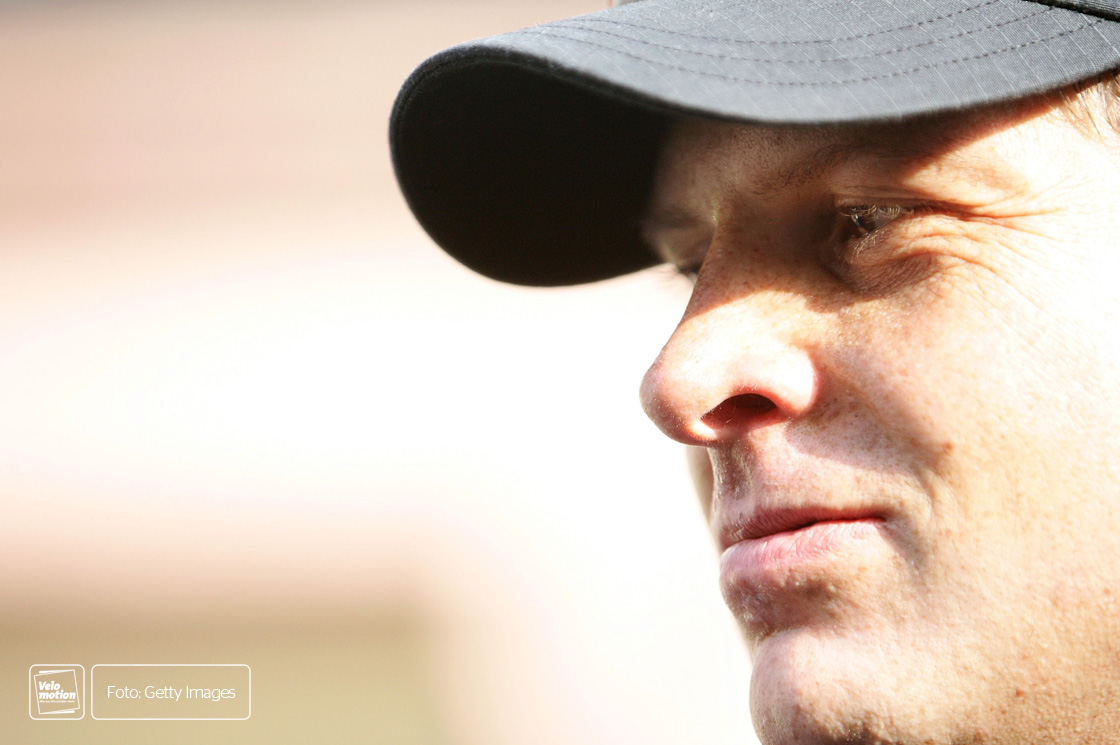
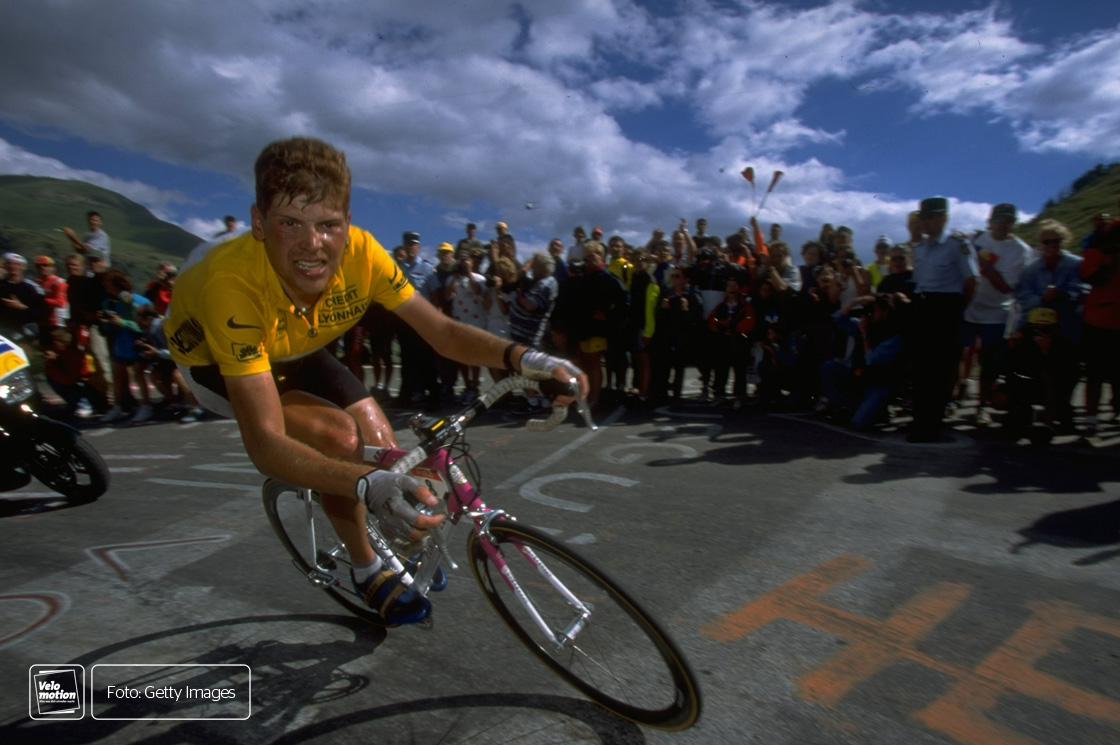
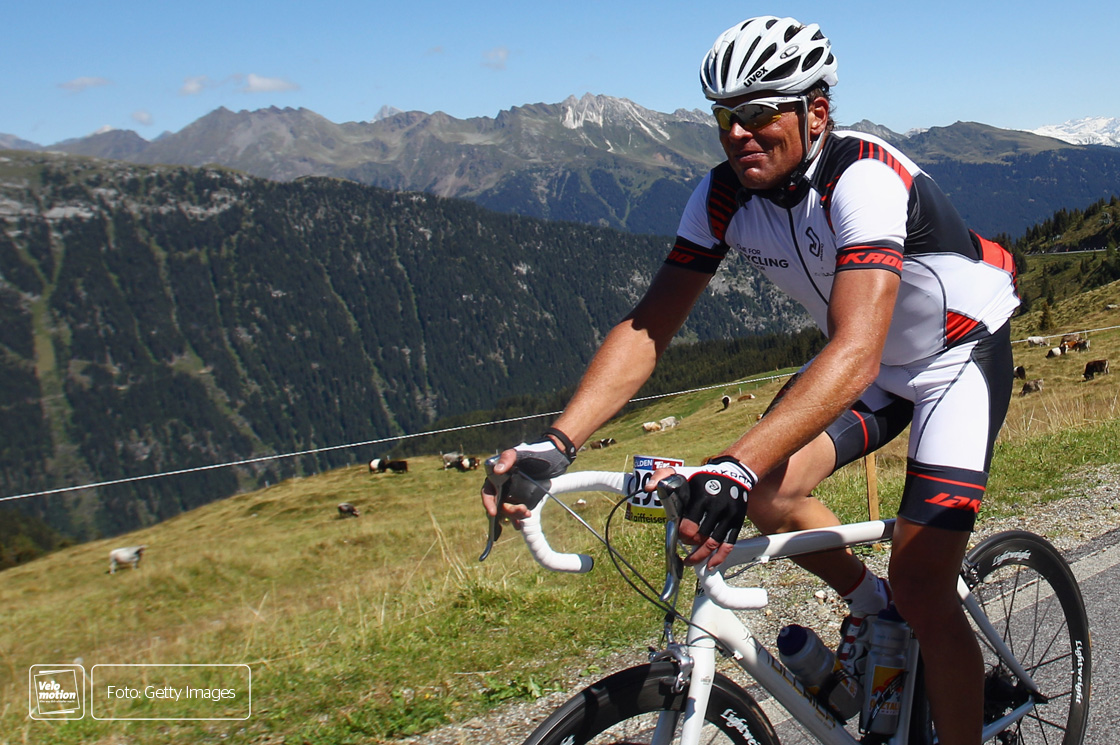
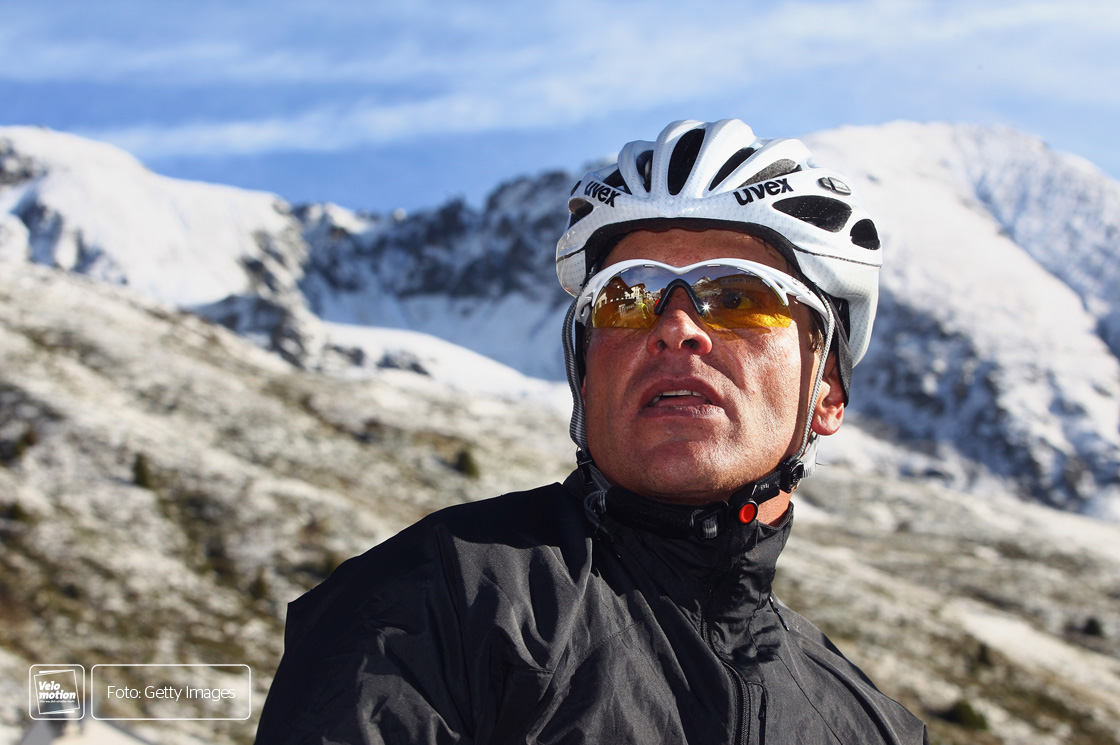
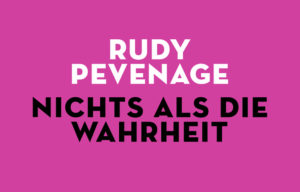
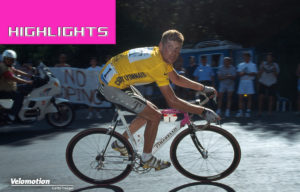
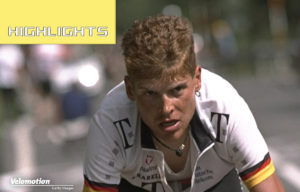
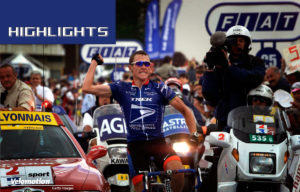
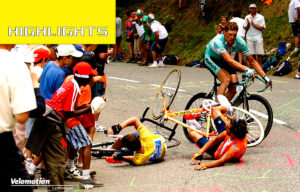
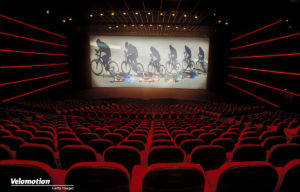
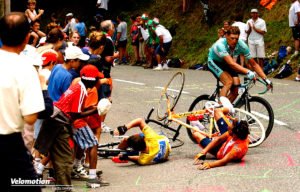
Schreibe einen Kommentar